87 F. high temperature in St. Cloud Saturday.
80 F. average high on August 15.86 F. high on August 15, 2014.
4 days above 90F so far this summer season. Normal for the entire year is 14 days at or above 90F.
August 16, 1981: Chilly across Minnesota with Tower reporting a low of 33 degrees.
Supernaturally GreenThe
manager at my favorite Caribou leaned out the drive-thru window and
shrugged. "Paul, I just moved here from Sacramento, where it's brown
most of the year. I can't get used to all this GREEN!"
It's greener than usual for mid-August. Looking at data since the start of meteorological summer (
June 1)
the metro area is 2-3 inches wetter, and 1 degree warmer than average,
to date. In spite of extreme heat or an extended run of 90-degree days -
we're still trending slightly warmer.
USDA data suggests
Minnesota may see a record corn harvest this year, the 3rd biggest on
record for the USA. This good news has depressed corn prices. No
droughts to stress the markets with uncertainty this year. A lack of
late summer drying may be tied to an amplifying El Nino, maybe the
biggest on record.
The approach of cooler air ignites a few
T-storms today, but no all-day washouts are expected. We cool into the
70s by midweek before spiking into the 80s again by
next Saturday. The heaviest rains remain south of Minnesota, but we may be brushed by showers again
Wednesday and
Thursday.
We've had an almost perfect marriage of sunshine, warmth and moisture this summer.
Compared to what much of America is enduring we've been very lucky.
Baseball Size Hail in Minnesota.
In light of the recent reports of golfball to baseball size hail in
central Minnesota AerisWeather meteorologist D.J. Kayser found this
Facebook post
from the Minnesota State Climatology Office and Minnesota DNR, showing
instances of 4"+ hail in the recent climate record. As you can see
western counties stand the greatest risk of serious hail: "
The
largest hail report from the severe storms on August 12 was 4.5 inches
or the size of a softball near Roseau. Here is a map of past hail
reports of 4 inches or greater from 1955 to 2014."
Wet Spell.
Models print out some 2-3" rainfall amounts by the middle of this next
week as a ripple of low pressure tracks along a stalled frontal boudary.
Watering optional for the next few days. Source: AerisWeather.com.
Touch of Mid-June in Mid-August.
Expect some locally heavy rain (00z NAM prints out over 2" of rain)
with another wave of showers possible late Tuesay into Thursday. No sign
of the typical drying trend we often see in August.
Slowly Souring.
The best chance of rain comes tonight, followed by a drop in
temperature and humidity Monday. This next push of Canadian air stalls,
keeping clouds and sporadic showers in the forecast into midweek. NAM
model guidance: NOAA.
Federal Experts: Current El Nino Could Be "Historically Strong". Even stronger than 1997-1998? Perhaps. Here's an excerpt from
Huffington Post: "...
This
definitely has the potential of being the Godzilla El Niño,” Bill
Patzert, a climatologist with NASA’s Jet Propulsion Laboratory, told the Los Angeles Times. “Everything
now is going to the right way for El Niño. If this lives up to its
potential, this thing can bring a lot of floods, mudslides and mayhem.”
NOAA's Mike Halpert said Thursday the current El Niño likely will rival
past super El Niños in 1997-1998, 1982-83 and 1972-73. The most recent
El Niño, beginning in 1997, caused the second-warmest and seventh-wettest winter since
record keeping began in 1895. Weather around the country turned
extreme, and severe flooding, ice storms and tornados raged from
California to Florida..."
El Nino Could Rank Among Strongest on Record. Following up on the theme above,
Climate Central has additional information and perspective; here's an excerpt: "...
It’s possible this El Niño, which in the latest update
was called “significant and strengthening,” could reach more than 3.5°F
above normal in this ocean region, “a value that we’ve only recorded
three times in the last 65 years,” Halpert said. That threshold was
reached during the 1997-1998 event, as well as those from 1982-1983 and
1972-1973. But El Niño isn’t just about a feverish ocean — what matters
to most people are the impacts to weather that those warmer waters can
usher in around the world. The shift of warm water from west to east in
the tropical Pacific causes changes in the circulation of the atmosphere
overhead. These shifts in turn create a domino effect of altered
atmospheric patterns across the globe..."
What Is El Nino? Climate Nexus has a very good explainer - here's a
link and excerpt: "
El Niño Southern Oscillation
(ENSO) is a large-scale ocean-atmosphere interaction in the tropical
Pacific Ocean. ENSO consists of oscillations between a warm phase (El
Niño) and a cool phase (La Niña). Each phase typically lasts from nine
months to a year, and occurs every three to seven years. The exact
timing of ENSO events is difficult to predict more than a few months in
advance, and we still don’t really know what factors might trigger El
Niño and La Niña events. El Niño gets its start in ocean dynamics..."
10 Years Later, Did We Learn Anything From Hurricane Katrina.
10 years ago we were tracking Katrina, which wound up costing the USA
1200 lives lost and $108 billion dollars in property loss. Here's an
excerpt of a post from Marshall Shepherd at
Forbes: "...
The National Hurricane Center
notes that since Katrina there has been: (1) Development of a prototype
storm surge watch and warning system through a collaborative effort of
NHC, National Weather Service, and National Ocean Service (2) Extension
of National Hurricane Center forecasts from 3 to 5 days and extension of
watches and warnings by 12 hours in 2010 to 48 and 36 hours,
respectively, and (3) Improved track forecasts. These advances are
critical because greatest loss of life comes from storm surge and
flooding..." (Image: NASA).
Improved Hurricane Models Could Save Lives, Money. Here's a clip from a good read, courtesy of
Arizona State University: "...
According
to Josh Watts, another ASU archaeologist on the project, hurricanes are
typically categorized based on wind speed, but much of the damage is
caused by flooding from the storm surge. Wind speed alone does not
predict the storm surge, so a Category 3 hurricane can be a really windy
day or a massive flood, depending on the way the tides, wind and
landfall all come together, Watts said. “We’re working on new models to
both predict the storm surge and provide accurate warnings for
evacuation planning,” he said. The team, which is led by the National
Center for Atmospheric Research and includes researchers from the
University of Colorado at Boulder, is sifting through data that at first
glance resembles a tangled ball of string..." (Hurricane Rita file: NOAA and NASA).
"In Chicago, Wishing For A Hurricane Katrina" Here's a headline that made me do a triple-take; details in this controversial Op-Ed at
The Chicago Tribune. Here are a couple of excerpts: "...
That's
what it took to hit the reset button in New Orleans. Chaos. Tragedy.
Heartbreak. Residents overthrew a corrupt government. A new mayor
slashed the city budget, forced unpaid furloughs, cut positions, donated
labor contracts. New Orelans' City Hall got leaner and more efficient.
Dilapidated buildings were torn down. Public housing got rebuilt.
Governments were consolidated...Hurricane Katrina gave a great American
city a rebirth. And after careful study of the levees, it turns out the
devastation was not born of natural disaster. It was man-made. The same
could be said of Chicago..."
Air Pollution Causes 1 in 4 Deaths in China, Over 4,000 A Day.
Quartz
has some amazing, horrifying statistics. Yes, by all means let's
abolish the evil EPA, get rid of all regulations, and be just like
China! Here's the intro: "
China has long known it has a problem with
air pollution, but a recent study has attributed a startling new death
toll to the issue. Berkeley Earth, a nonprofit that studies climate
change and related issues, says 1.6 million deaths in China are caused
by air pollution every year. That’s well over 4,000 per day, or 17% of
all deaths. In its paper,
to be published by the peer-reviewed journal Plos One this month, the
organization also examines the sources of air pollution in China..."
* Bloomberg Business has more perspective on China's air pollution epidemic
here.
Beautiful Caribbean Beaches Now a Smelly Mess After Massive Seaweek Invasion. What is going on?
The Washington Post reports; here's a snippet: "
One
of the Caribbean’s most important and alluring assets is in trouble.
Beautiful beaches that, as the official tourism site for Barbados
describes as “nothing less than perfect,” have become infested with a
massive amount of smelly and decaying seaweed.
From the east coast of Mexico to Barbados, large clumps of the brown
seaweed known as sargassum have been piling up, attracting biting sand
fleas. In some cases, the seaweed piled up as high as 10 feet, the Associated Press reports..."
Photo credit above: "Large quantities of seaweed lay ashore at the Playa Los Machos beach, in Ceiba, Puerto Rico, on Saturday, Aug. 8, 2015." (Ricardo Arduengo/AP).
Germany's Bizarre Version of Capitalism - Where Bosses and Workers Actually Cooperate - Is Winning. Quartz explains the formula that has helped Germany to be so successful in recent years; here's an excerpt: "...And
then of course, there’s the German model. German capitalism
traditionally commingled elements that seem impossibly antithetical to
outsiders: muscular unions and corporate efficiency; high-cost workers
who can compete in global manufacturing; generous unemployment benefits
and low levels of unemployment; and a fragmented base of independent
small-and-medium manufacturers—the Mittelstand—able to compete on the
highest levels of productivity and efficiency. For its apparent
paradoxes, one fact is increasingly clear: German capitalism is winning..."
*
My father, who was born in Germany and was able to escape Communist
East Germany and attend college here in the USA (Wabash) adds: "The
key is eduction. On every level. Even union workers with just a grade
school education undergo a lengthy training process. The trade tradition
is very stron and historic. Going back centuries. It takes years before
someone is allowed to work on the assembly line at Volkswagen or BMW.
They train and train. Which they have also done here in Alabama. My car
was built at Mercedes in Alabama and has been meticulously assembled. I
have read how they hire from a huge pool of applicants and then how they
train..."

Inside Amazon: Wrestling Big Ideas in a Bruising Workplace. Here's a snippet of a fascinating glimpse inside the retailing monster from
The New York Times: "...
At
Amazon, workers are encouraged to tear apart one another’s ideas in
meetings, toil long and late (emails arrive past midnight, followed by
text messages asking why they were not answered), and held to standards
that the company boasts are “unreasonably high.” The internal phone
directory instructs colleagues on how to send secret feedback to one
another’s bosses. Employees say it is frequently used to sabotage
others. (The tool offers sample texts, including this: “I felt concerned
about his inflexibility and openly complaining about minor tasks.”)..."
Tech's Enduring Great-Man Myth.
For the record I'm an Elon Musk fanboy. He could have taken his Paypal
money and bought a small island (OK, a big island) in the Caribbean and
been set for multiple lifetimes. He didn't - he plowed it back into a
series of risky ventures, almost failed, but kept going until he
succeeded on a massive scale, with Tesla, Solar City and SpaceX. I don't
buy into the theme of this story at
MIT Technology Review, but in the spirit of full disclosure here's a link and excerpt: "
Since
Steve Jobs’s death, in 2011, Elon Musk has emerged as the leading
celebrity of Silicon Valley. Musk is the CEO of Tesla Motors, which
produces electric cars; the CEO of SpaceX, which makes rockets; and the
chairman of SolarCity, which provides solar power systems. A self-made
billionaire, programmer, and engineer—as well as an inspiration for
Robert Downey Jr.’s Tony Stark in the Iron Man movies—he has been on the
cover of Fortune and Time. In 2013, he was first on the Atlantic’s list
of “today’s greatest inventors,” nominated by leaders at Yahoo, Oracle, and Google. To believers, Musk is steering the history of technology..."
In 1919 Eisenhower Suffered Through History's Worst Cross-Country Road Trip. What got America's interstate system off the dime?
Atlas Obscura describes how tortuous it was going from coast to coast early in the 20th century; here's a clip: "...
This
was one of the first major cross-country road trips, and it planted the
idea in the Eisenhower's mind that the federal government could and
should make improving U.S. highways a priority. Soon, driving from coast
to coast would become mythologized as one of the key American
experiences. But in 1919, it was a terrible, torturous endeavor. In 62
days, more than 80 trucks, cars and motorcycles made their way along the
planned route of the Lincoln Highway, one of the first cross-country
highways ever built. They crossed plains, mountains and deserts on roads
that, up until Nebraska, were surprisingly well made..."
Photo credit above: "
The whole convoy". (Photo: Edward J. Mandel Collection/Eisenhower Archive).
TODAY: Sunny peeks, still sticky with a few T-storms. Dew point: 68. Winds: SW 10. High: 83
SUNDAY NIGHT: Lingering showers, possible thunder. Low: 64
MONDAY: Wet start, then intervals of sun, cooler and less humid. Dew point: 60. High: 76
TUESDAY: More clouds than sun, comfortable. Wake-up: 61. High: 74
WEDNESDAY: Early showers, late PM clearing. Wake-up: 60. High: 73
THURSDAY: Clouds increase, late showers? Wake-up: 58. High: 72
FRIDAY: Plenty of sun, warmer. Wake-up: 60. High: 78
SATURDAY: Sticky sun, strong T-storms late. Wake-up: 63. High: 84
Climate Stories....
Global Warming Increases "Food Shocks" Threat. Here's an excerpt from
BBC News: "...
Poor
harvests and low stocks of grains in 2008 combined with a host of other
factors to produce a spectacular price rise in cereals, with a UN index of prices peaking at 2.8 times higher than it was at the turn of the millennium. In 2010-11, a heat wave in Russia led to the country's worst drought in 40 years,
decimating the grain harvest and leading indirectly, to food riots in
North African countries as prices of bread rose rapidly. Now researchers
from the US and the UK have analysed the chances of extreme weather events causing these types of food shocks as the world warms over the coming century..."
Photo credit above: SPL. "
Drought is one of the most significant impacts of climate change on food ."
Risk Of Food Shortages To Rise With Climate Change.
Weather whiplash, going from drought to flood with greater frequency
and intensity presents a challenge to agriculture. Following up on the
study and story above
CBS News has a slightly different perspective: "...
Other scientific studies have suggested that increased greenhouse gas emission mostly from the burning of fossil fuels will reduce the availability of some vegetables, fruits and seafood varieties, cause others to lose their taste and make some food crops less nutritious.
In Friday's report, the task force warned that the global food system
was especially vulnerable because food crops like wheat come from just a
handful of major producing countries and due the fact that the world is
so interconnected - reducing the impacts of a local shock while
increasing the vulnerability to large shocks in distant "breadbasket"
regions..."
 Evolved View on Global Warming
Evolved View on Global Warming. Here's an excerpt of a courageous Op-Ed at
The Houston Chronicle, at the epicenter of America's fossil fuel capital: "...
We
believe global warming is a serious threat to our world and, with some
reservations, support President Barack Obama's plan to cut carbon
dioxide emissions from power plants 32 percent by 2030. The U.S. is
second to China in total man-produced emissions of the gas considered
the top climate change culprit, but emits much more on a per capita
basis than any other large developed nation. Ten of the warmest years on
record have occurred in the last 12 years, glaciers and ice sheets are
melting all over the world and oceans are rising as a result. Climate
change deniers often say we're just in a warmer meteorological cycle.
It's possible, but we've never been in a cycle where each day humans
poured 80 million tons of carbon dioxide into the atmosphere as we do
now..."
Fossil Fuels are Doomed. It
won't happen overnight - but a combination of factors is already
transforming the energy sector. Why so much "debate" about climate
science? There are trillions of dollars of coal, oil and natural gas
still in the ground, and some of the richest corporations on the planet
want to be able to harvest those dirty fuels. Fading industries are
fighting to maintain market share, and a little confusion in the
marketplace can serve their interests. It's a threat - and a massive
opportunity to reinvent our energy ecosystem. Here's an excerpt of a
story at
US News: "
Sure,
dystopia may be just around the corner. We may, in fact, be doomed – as
climate change begins to accelerate mass species extinctions and
threatens critical water and food supplies - but I wouldn't bet against
the human race. We are in the midst of an economic transformation
unparalleled in the world's history. It's happening so quickly, and at
such scale, that it's almost beyond recognition to most people. It's
enmeshed in deep, polarizing, conspiratorial political fights, further
obscuring its rise. Dozens of the wealthiest corporations in the history
of the world – and government leaders at their beck and call — are
bitterly opposed to this transformation, and are determined to deny it..."
We Need a Miracle on Climate Change. Here's an excerpt of an Op-Ed from Michael Gerson at
The Washington Post: "...
There
was no way to get to the moon by stacking ladders. That required an
entirely different technology. Current environmental responses are the
stacking of ladders. “We need breakthroughs,” says Gates. It is sobering
when your only sufficient policy response is the production of a
miracle. But I’ll add a few more depressing political and economic
factors. Human beings are fairly good at calculating costs into their
decision-making — saving for a rainy day, buying car insurance — if the
time horizon is a few months or a few years. They are not as good at
assuming burdens, as in environmental policy, when the time horizon is a
few decades or centuries..."

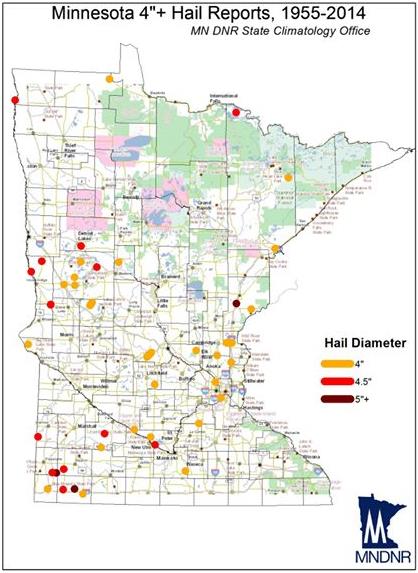

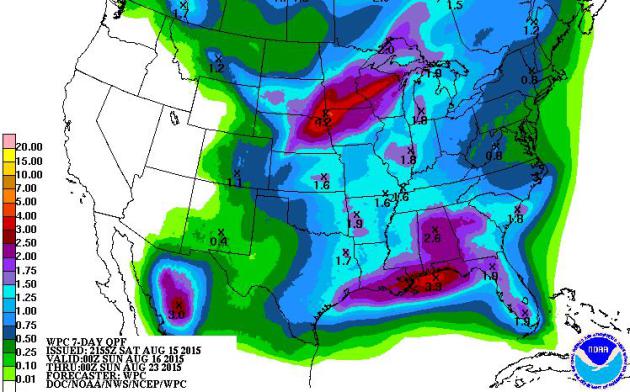
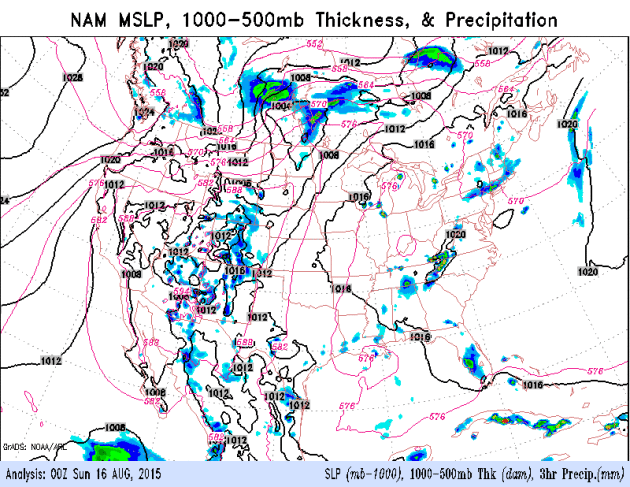
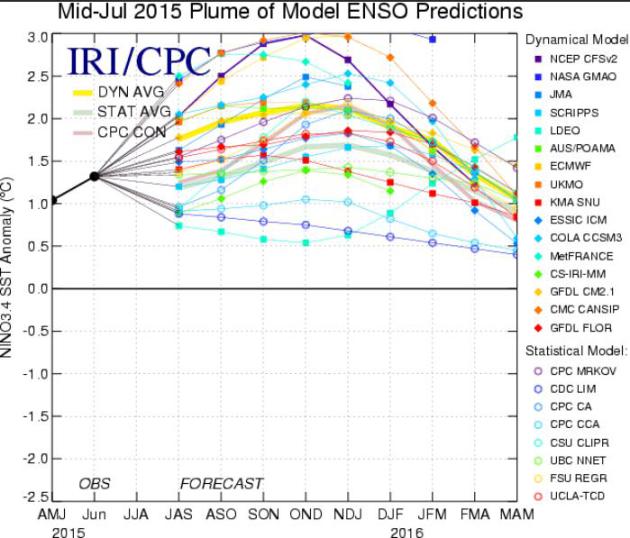
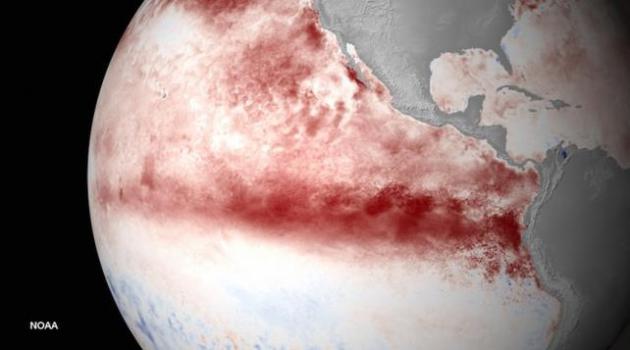

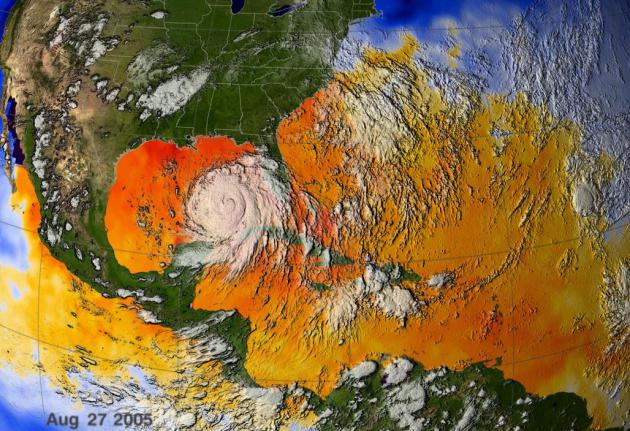
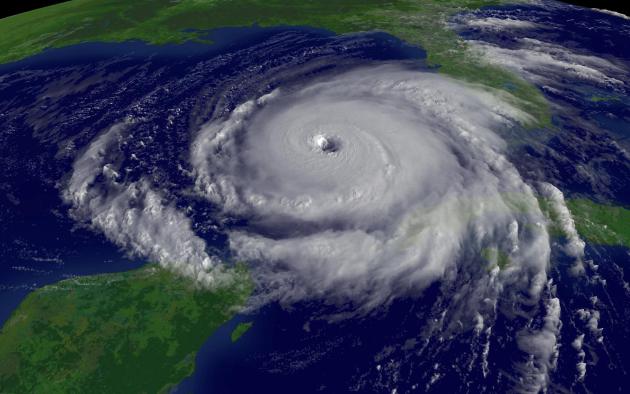
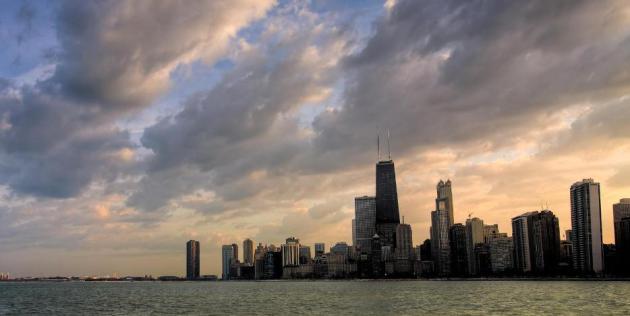
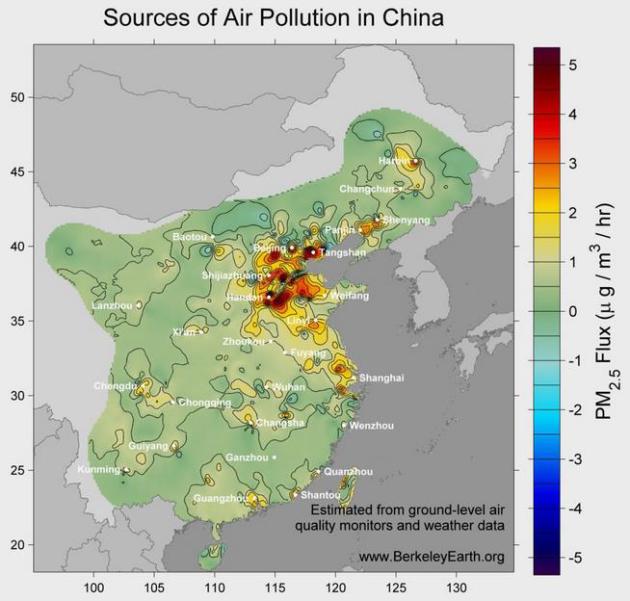
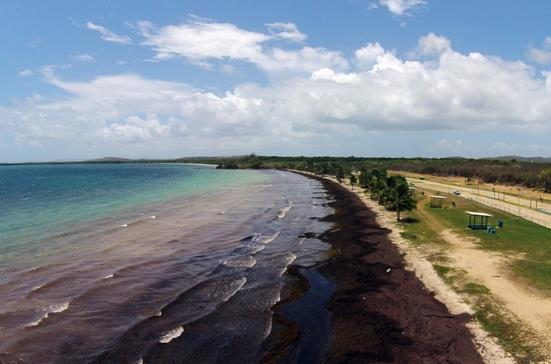
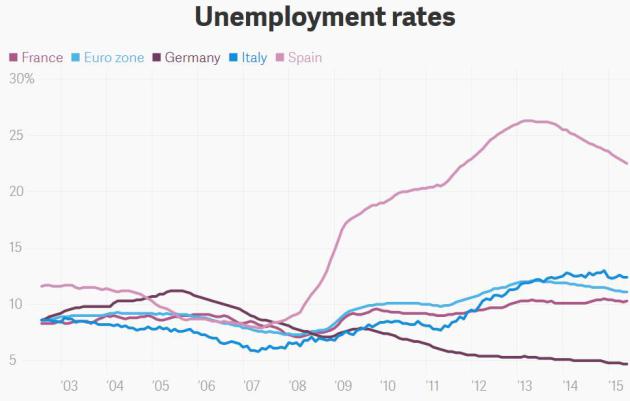

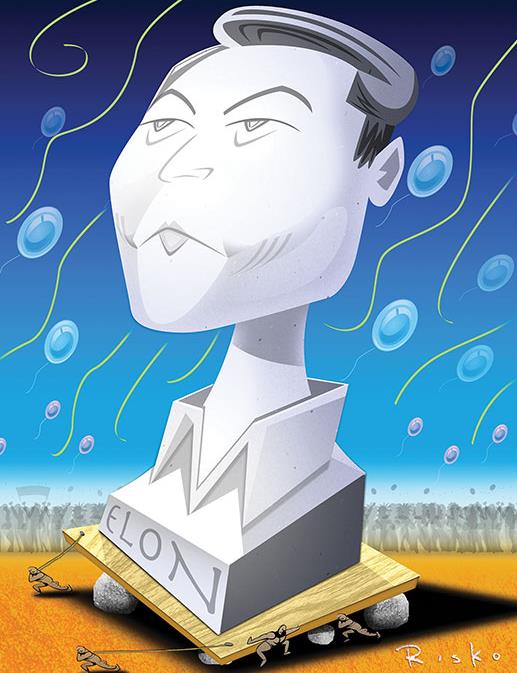
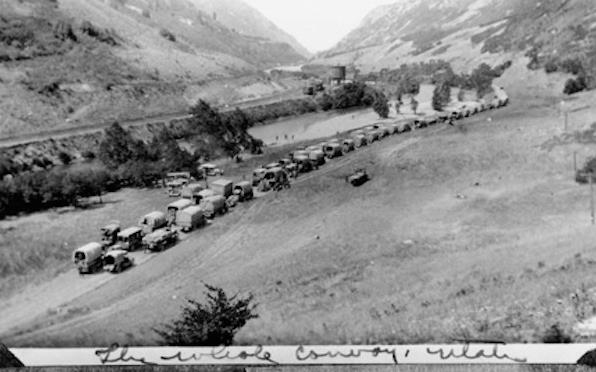
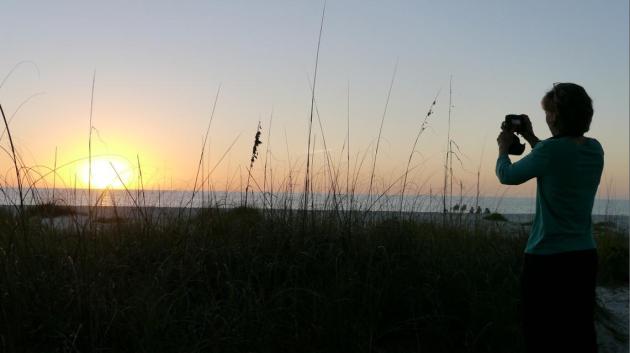
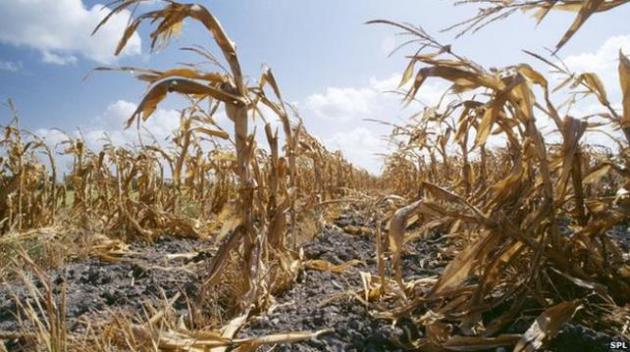

.jpg)
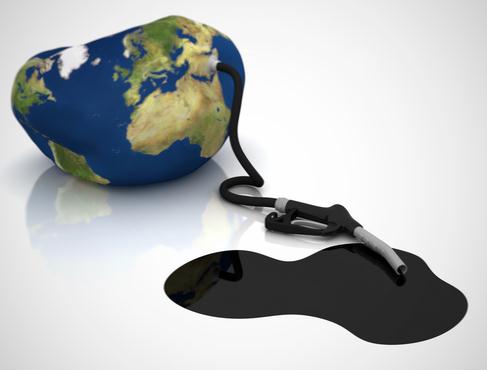
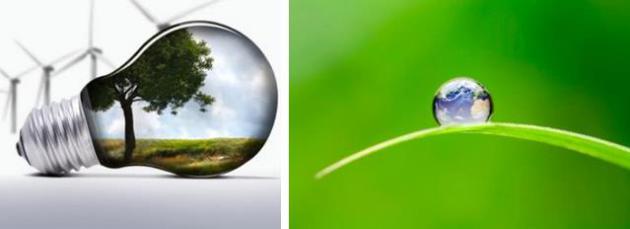
No comments:
Post a Comment